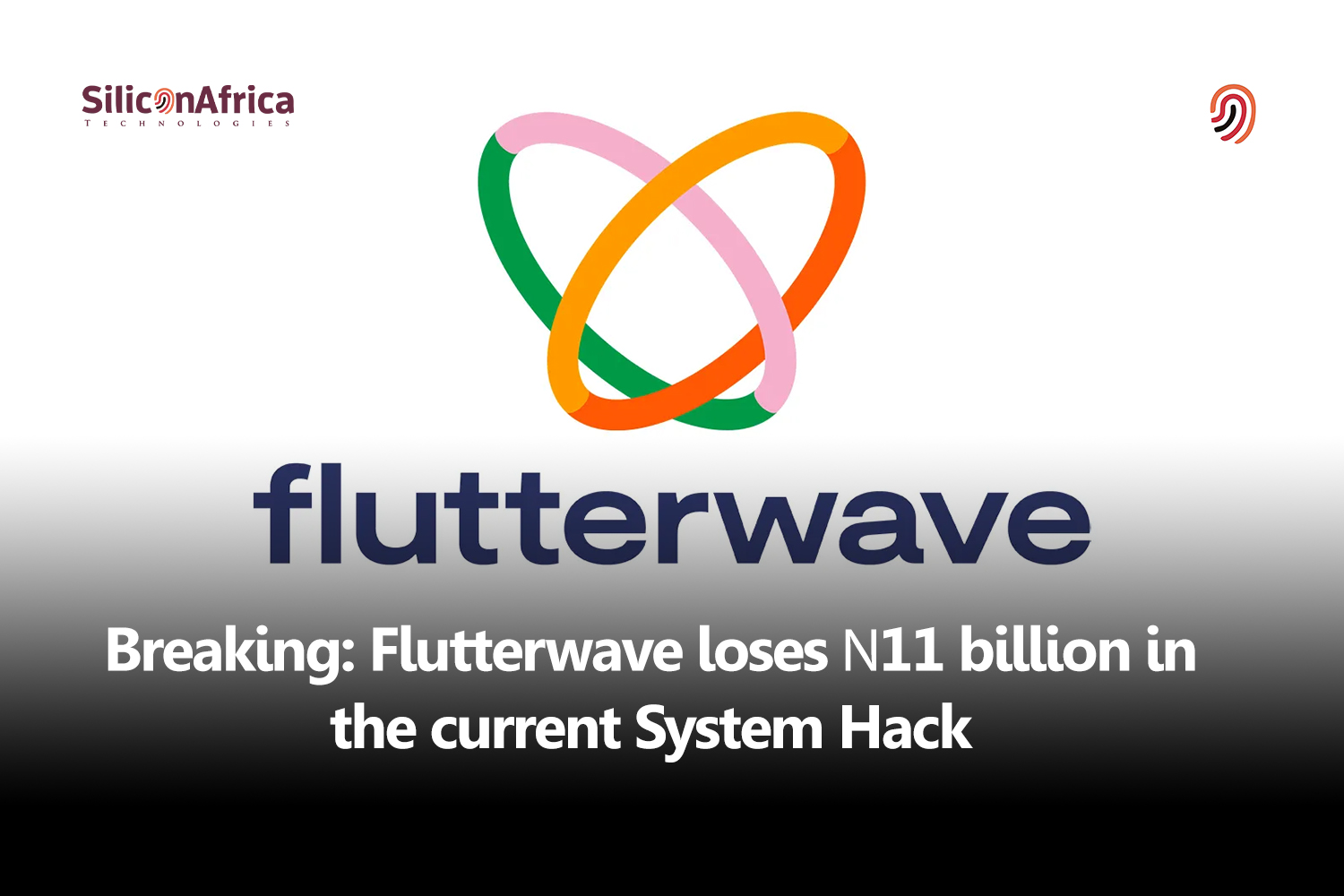Newsletter Subscribe
Enter your email address below and subscribe to our newsletter

Flutterwave has been hacked! Nigerian fintech leader Flutterwave got hacked, with reports suggesting the company lost a staggering ₦11 billion ($27 million) in April 2024.
This news comes just a month after Flutterwave secured a court order to recover $24 million lost to unauthorized Point-of-Sale (POS) transactions, highlighting potential vulnerabilities in the company’s financial security systems.
While the exact nature of the breach remains undisclosed, sources with knowledge of the incident claim unauthorized individuals diverted billions of naira into various bank accounts.
The source of the leak is yet to be pinpointed, but speculation centers on a potential compromise within Flutterwave’s internal systems designed to safeguard and monitor their services.

The exact amount stolen is also a point of contention as an anonymous source claims ₦11 billion was diverted.
However, a separate insider suggests the figure could be as high as ₦20 billion ($50 million).
Flutterwave has acknowledged the incident, stating in a press release, “We are aware of a potential compromise within our systems set up to protect and monitor services.”
The company further confirmed reaching out to financial institutions to obtain Know Your Customer (KYC) details for the accounts suspected to be involved in the illegal transfers.
These accounts have reportedly been flagged and temporarily restricted by the relevant banks.
The modus operandi of this attack appears distinct from typical financial breaches.
In usual cyberattacks, hackers attempt to conceal their tracks by funneling stolen funds through a multitude of unsuspecting user accounts.
These user details are often obtained through online scams or social engineering techniques, and then fed into automated programs that execute mass transfers.
However, reports suggest a more targeted approach in the Flutterwave incident.
The details surrounding this case remain under investigation, but the nature of the targeted accounts suggests a different tactic may have been employed by the perpetrators.
Read More: Flutterwave Appoints Former CBN Director as New Board Chairman
This incident casts a shadow over Flutterwave’s reputation and raises concerns about the overall security of the Nigerian fintech sector.
As a leading player in the industry, a successful cyberattack of this magnitude could erode user confidence in Flutterwave’s ability to safeguard financial information.
The breach also highlights the urgency for robust cybersecurity measures within the fintech landscape.
With the increasing digitization of financial transactions, fortifying digital defenses against cyber threats becomes paramount.
Regulatory bodies and financial institutions must collaborate to establish stricter security protocols and implement stricter monitoring systems to prevent similar attacks in the future.
While the immediate aftermath of the breach is unfolding, several questions remain unanswered.
The true extent of the financial losses incurred by Flutterwave is yet to be definitively confirmed.
Additionally, the specific vulnerabilities exploited by the hackers and the methods used to infiltrate Flutterwave’s systems are shrouded in secrecy.
As investigations progress, it is crucial for Flutterwave to maintain transparency with its user base and the broader financial community.
Providing clear and concise communication regarding the nature of the breach, the recovery efforts undertaken, and the steps being implemented to enhance security will be essential in regaining user trust.
The Flutterwave hack serves as a stark reminder of the evolving nature of cyber threats within the financial sector.
As technology continues to advance, so too must cybersecurity measures to safeguard sensitive financial data and maintain user confidence in the digital financial ecosystem.
Was this information useful? Drop a nice comment below. You can also check out other useful contents by following us on X/Twitter @siliconafritech, Instagram @ Siliconafricatech, or Facebook @ Silicon Africa.